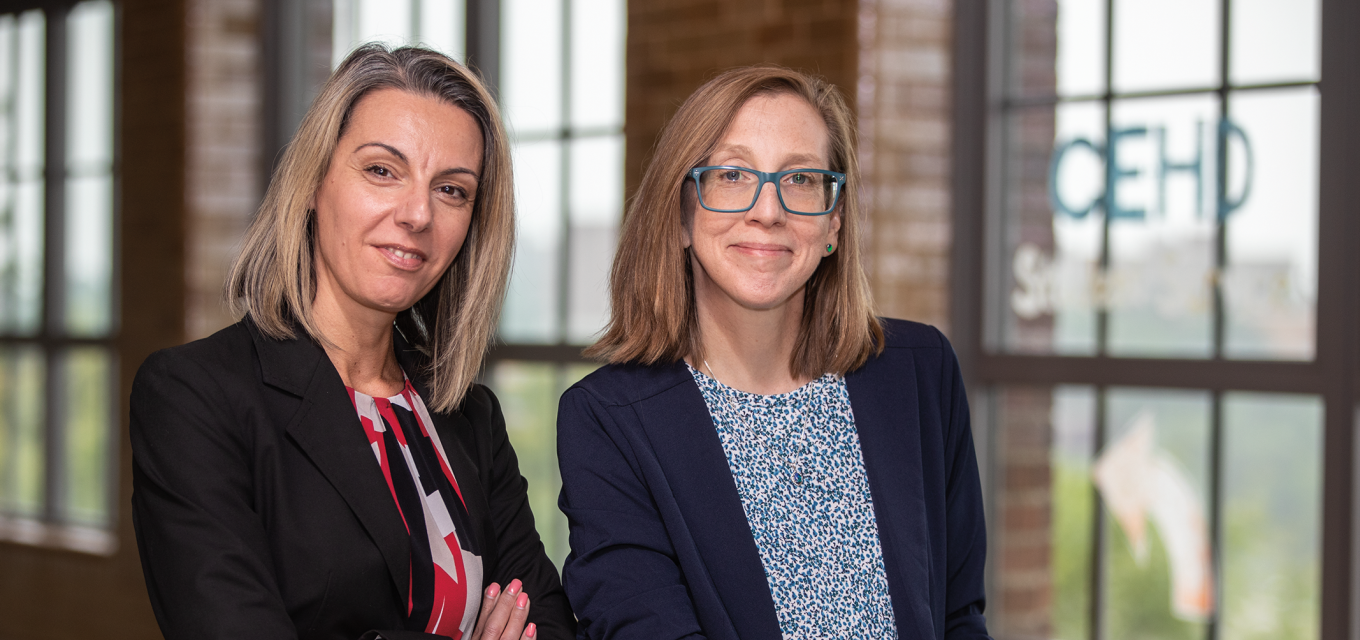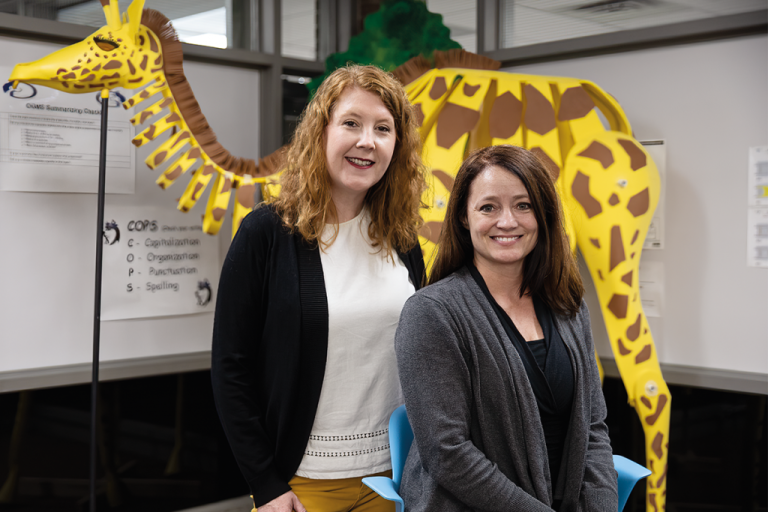News

Inference Galaxy—interstellar adventures in reading comprehension
CEHD researchers pool their expertise to create engaging instructional tools.
For many years, national assessment data has shown that nearly one-third of all fourth-grade students score below proficient levels in reading, meaning they are having trouble comprehending what they read. For many students identified as having disabilities, many multilingual learners, and those from minoritized backgrounds, the gap is even wider.
To help bridge the gap, Distinguished McKnight University Professor and Guy Bond Chair in Reading Panayiota (Pani) Kendeou, Educational Psychology Department Chair and Stern Family Professor of Reading Success Kristen McMaster, and colleagues have been pooling their research expertise to develop an application to develop students’ inference skills.
“Researchers and teachers know a lot about how to support students’ acquisition of ‘code-focused’ skills such as recognizing letter sounds and blending sounds and larger word parts into whole words,” says Kendeou. “But less is known about how best to support students’ development of ‘meaning-focused’ skills, or comprehension. Yet, both types of skills are necessary. We are trying to fill this gap in knowledge and practice.”
The onset of their collaboration was their common goal to ensure that every child, beginning as early as kindergarten, has access to high-quality reading instruction and intervention that is informed by the science of reading.
“As surprising as it may seem, the most popular reading programs in U.S. schools are not backed by the science of reading,” McMaster says. “This is because reading researchers have approached the scientific study of reading and its translation to educational practice as distinct and independent lines of inquiry.”
Thanks to funding from the Institute of Education Sciences in the U.S. Department of Education, the researchers are pursuing their vision of directly linking the science of reading to effective reading instruction through the strengths of technology. They are also relying on their particular research strengths to inform their work.

Kendeou brings in expertise related to the cognitive processes involved in reading comprehension. Her work has shown that inferencing is key, so she has developed the Inferential Language Comprehension (ILC) framework to show the relation between inferencing and comprehension. McMaster is an expert in school-based literacy instruction and intervention, and she has helped translate ILC into a learning experience that is appropriate and engaging for young children. In partnership with CEHD’s Educational Technology Innovations (ETI), they have developed the tutoring systems Technology-Based Early Language Comprehensive Intervention (TeLCI) and Early Language Comprehension Individualized Instruction (ELCII).
“TeLCI and ELCII are innovative educational technologies that provide opportunities for deliberate and individualized teaching of inferencing in elementary school students starting at kindergarten,” Kendeou says.
Inference instruction is delivered to children in a web-based environment called Inference Galaxy by an intelligent avatar—a green or purple cartoon alien character. The alien works with students one-on-one to view videos and engage in inferencing activities while also providing individualized support and feedback.
“For example, the alien introduces key vocabulary words, then students watch age-appropriate fiction and non-fiction videos,” McMaster says. “Throughout each video, the alien asks inferential questions and provides feedback to help students correctly answer the questions. There is also a book read-aloud component that is led by the teacher and is designed to support the transfer of inferencing skills from a video context to a book-reading context.”
ELCII is designed for all students in kindergarten classrooms and TeLCI is intended for students in first and second grade who have been identified as at-risk for reading comprehension difficulties. A third project, MIA (Minnesota Inference Assessment), looks similar to ELCII and TeLCI, but is used as an assessment that helps evaluate a child’s inference making before and after they receive instruction.
“There is no web-based solution that is also evidence-based to provide comprehension instruction to children this young,” Kendeou says. “In that respect, our work is unique and also leading in this area of research. We are providing a comprehensive solution that integrates assessment [MIA], high-quality instruction [ELCII], and targeted intervention [TeLCI].”
“Our vision is for every elementary school-aged child, especially the most vulnerable, to have the opportunity and access for individualized instruction from school or home regardless of circumstance.”
To evaluate Inference Galaxy in action, the researchers set up a set of quasi-experimental and randomized control trials in Minnesota public schools where teachers used it to supplement their typical reading instruction.
“The program is engaging and informative, and highly effective at teaching even the youngest of learners to make inferences,” says Michelle Hamren, a kindergarten teacher at Richfield Public Schools. “Making inferences is a critical reading comprehension skill, which is paramount to complete understanding of text. ELCII builds these skills in a fun, scaffolded manner which supports students as they learn.” Fellow Richfield kindergarten teacher Anna Kusche agrees. “The students really enjoy using the program and have improved their ability to make inferences,” she says. “Inference Galaxy has been a great addition to my kindergarten classroom.”
Since ELCII and TeLCI are cloud-based applications, students are able to access them from home, which was a boon as the pandemic pushed most children to remote learning.
The next step for Inference Galaxy is to reach as many students as possible in Minnesota and beyond. The researchers are currently working with ETI to scale it up as a one-stop, web-based solution for inference assessment and instruction.
“Our vision is for every elementary school-aged child, especially the most vulnerable, to have the opportunity and access for individualized instruction from school or home regardless of circumstance,” Kendeou says. “We aspire that Inference Galaxy will help us close persistent achievement gaps and create a more just and literate society.”
Photos courtesy of Greg Helgeson
Learn more at inferencegalaxy.com
-Kevin Moe